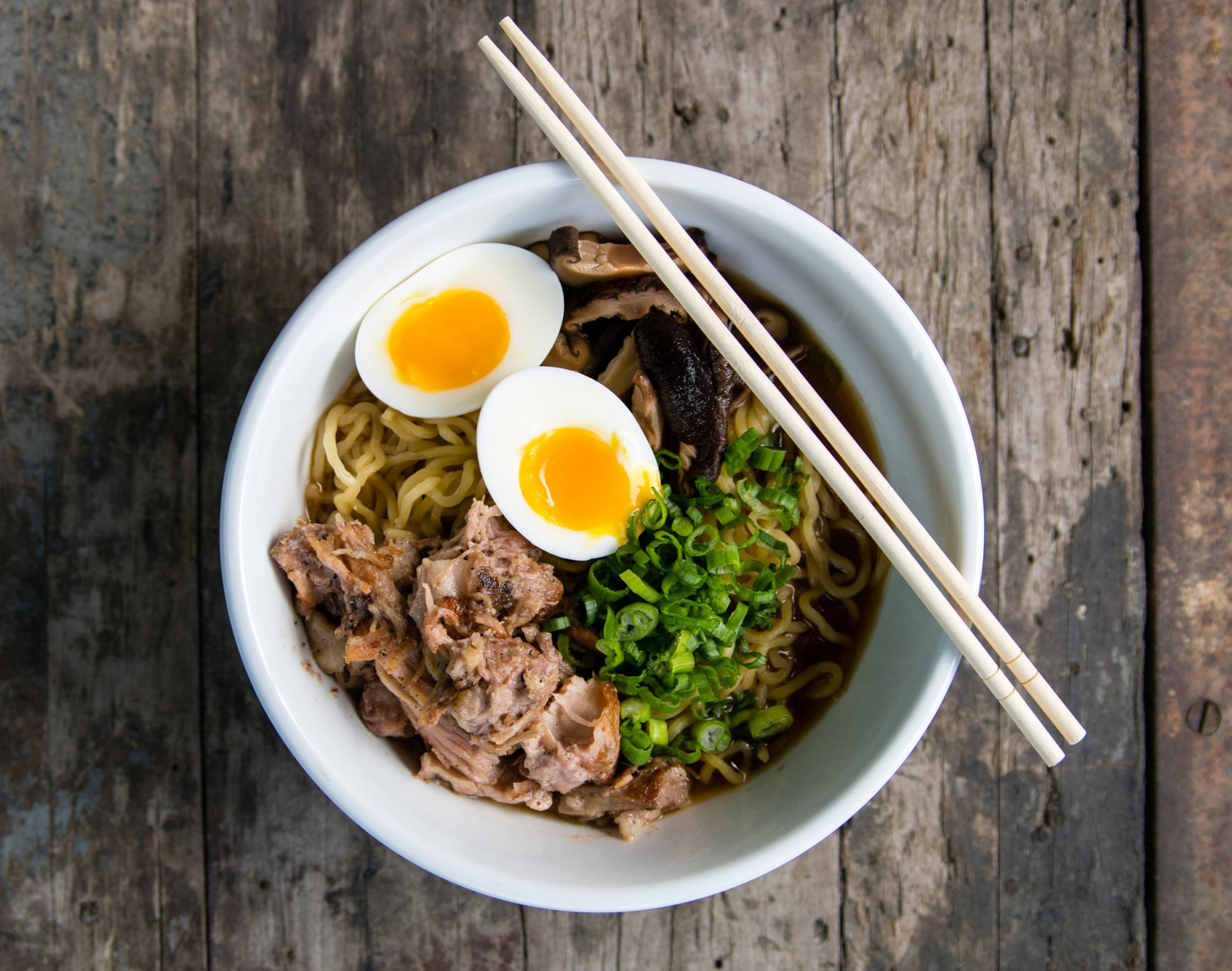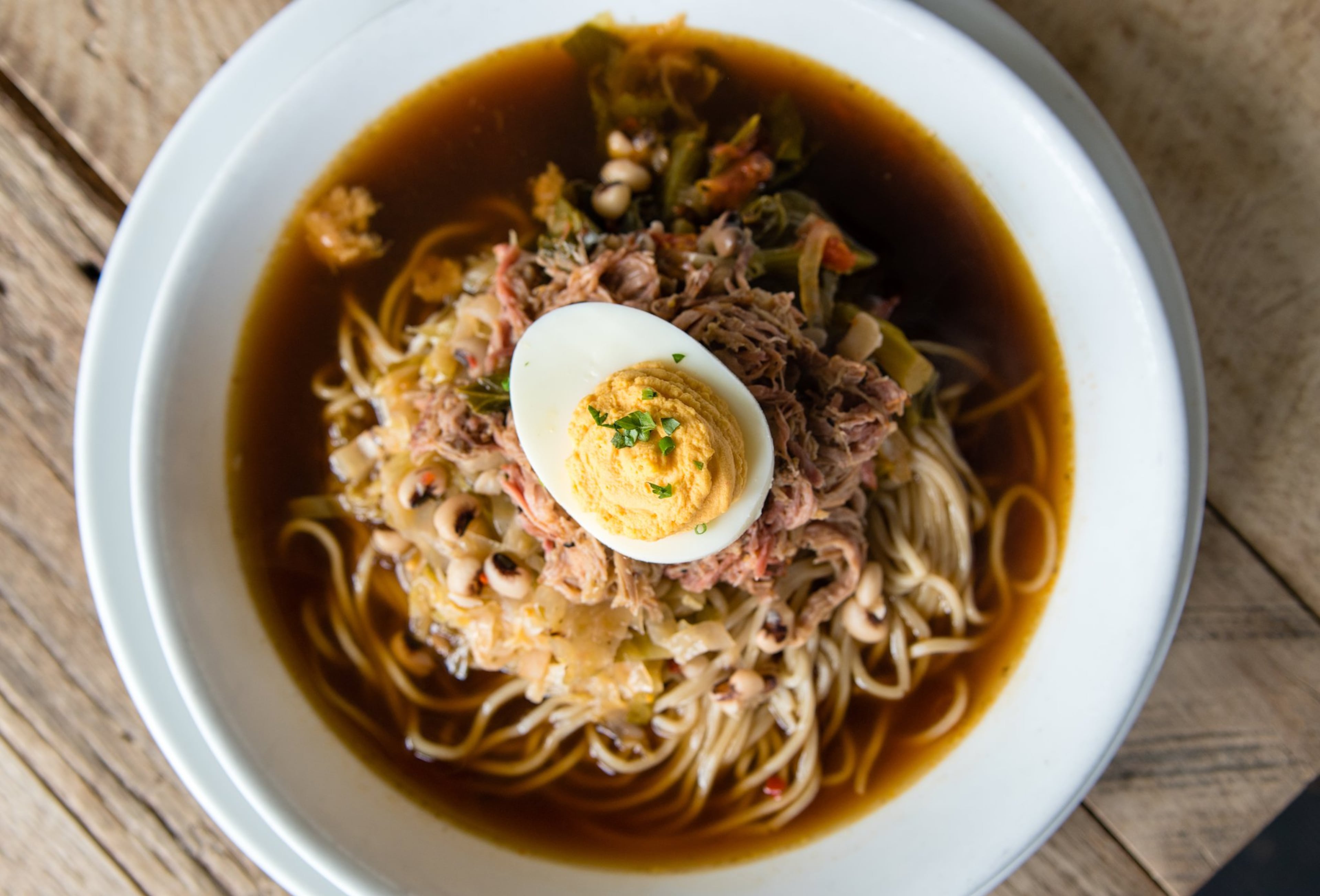Nontraditional ramen worthy of its own tradition

Anyone who has seen the classic Japanese film “Tampopo” knows that making ramen is no simple thing.
The movie tells the story of two truck drivers who take pity on a widow, Tampopo, whose small, roadside restaurant is struggling simply because her ramen is not good enough. They bring her from one ramen-ya (traditional ramen shop) to another, where she learns the precise, time-honed traditions that produce flawless chashu (sliced pork), firm noodles, silky broth, and the precise pleasure of ramen counter service. By the end, her journey to adopt and perfect the traditions of ramen preparation is as epic, absurd and comically difficult as Homer’s “Odyssey.”
Is a traditional bowl of tonkotsu ramen really worth all of that work? I have a hard time believing that anyone who has tasted one would say no. But does a bowl of ramen have to adhere to all of those traditional techniques to be so good? I used to be skeptical of that idea, but I’m coming around.
In recent years, it has seemed like every chef has wanted to put a bowl of ramen on the menu. Usually that means breaking with some kind of tradition, whether a small detail like not serving it at the counter of a ramen-only restaurant or a bowl of noodles and broth that doesn’t really have anything in common with ramen at all. Often times, it also means an inferior bowl: watery broth or too soft noodles or imbalanced flavors.

Lately, though, I've noticed that nontraditional ramen chefs are getting a little better at serving their own take on the dish. At Beetlecat (299 N. Highland Ave., Atlanta. 678-732-0360,beetlecatatl.com), executive chef Andrew Isabella serves a rich, dark miso-laden broth over firm, wavy alkaline noodles. The toppings, which include shiitake mushrooms, scallions, sesame seeds and a medium-boiled egg, seem mostly traditional, but in place of sliced chashu-style roast pork, Isabella has substituted fatty strands of pulled pork. That's the touch of a Southern chef if there ever was one.
I’ve been even more impressed, though, with a couple of chefs who have made their own fully Southern, completely nontraditional takes on ramen.

At Southbound (5394 Peachtree Road, Chamblee. 678-580-5579, southboundatl.com), the menu offers perhaps the most comically Southern take on ramen I've ever seen, piled high with black-eyed peas, collard greens, chowchow, and, hilariously, a deviled egg. The dark, porky broth is pretty good, though the noodles are too soft to qualify as true ramen noodles. The bright acid of the pickled chowchow and the rich indulgence of a deviled egg, though, make for an entertaining combination.
None of these compare, though, to the bowl that Bruce Logue serves at his excellent Italian restaurant BoccaLupo (753 Edgewood Ave., Atlanta. 404-577-2332, boccalupoatl.com). Like all of the noodles he serves, Logue makes the noodles in-house, topping them with a broth that tastes both of salty, collard green pot liquor and clean pork bones. There are excellent boiled peanuts, julienned radish, seared pork belly and a fierce smear of chile paste running around the bowl that will bring a sweat to your forehead. In making a ramen as nontraditional as possible, Logue has made one worthy of its own tradition. I think even Tampopo would be proud.
<<Take a tour of Atlanta's new fusion revolution:
<<Videos:
<<For fun:

